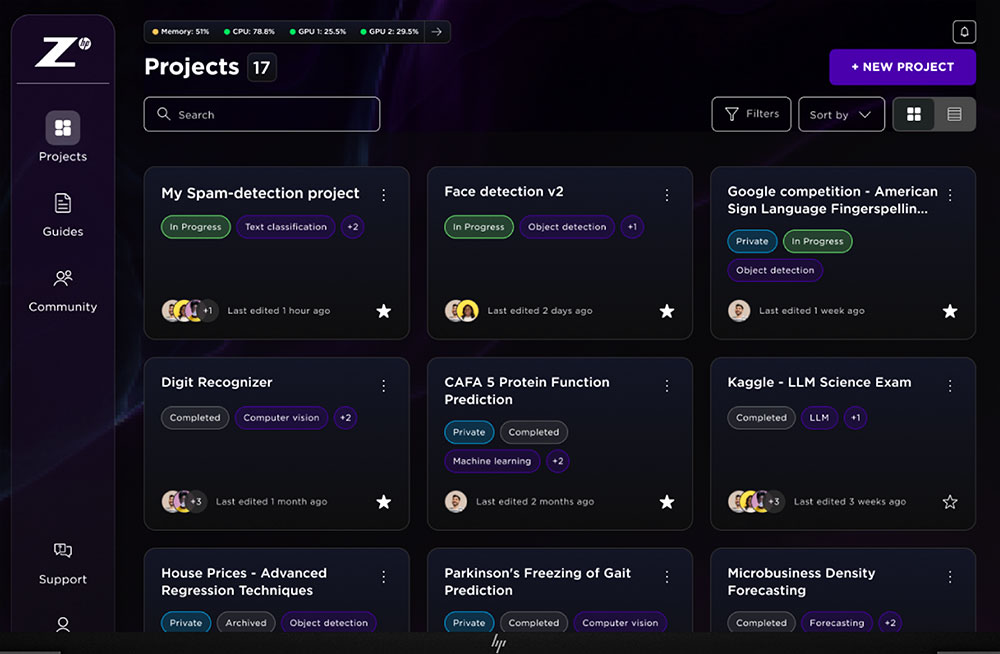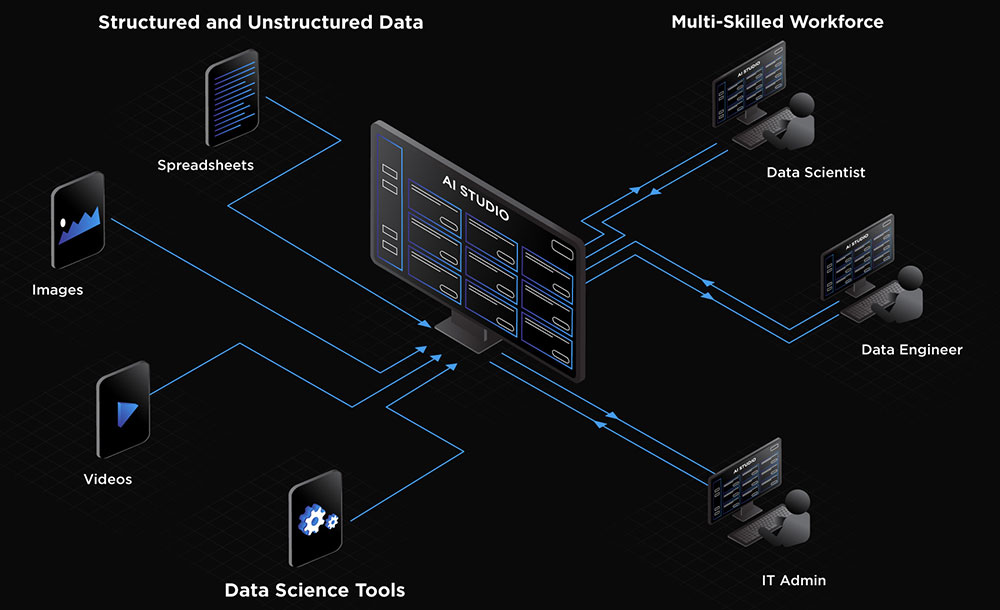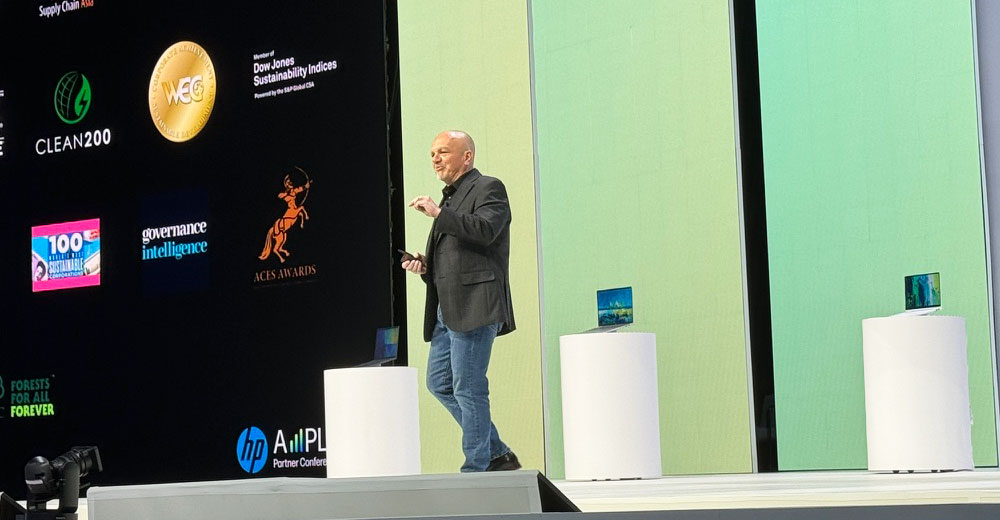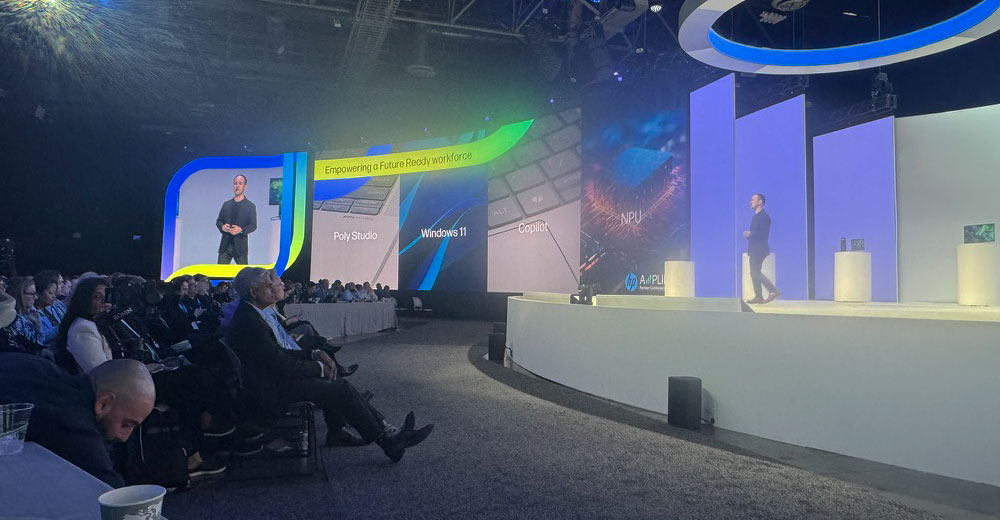After attending the HP Amplify Partner Conference 2024 in Las Vegas last week for three days, I can state unequivocally that I have rarely participated in a technology event where my initial reaction changed so dramatically within the first 24 hours.
For those unfamiliar, HP’s Amplify event annually showcases its latest technologies and innovations to empower partners and customers in the digital age. The show serves as a platform for HP to demonstrate its vision for the future of technology and its role in shaping a more inclusive and sustainable world.
With that as a backdrop, the first day didn’t exactly knock me off my feet, as the keynotes lacked significant substance or major product news. The company leadership clarified that HP is embracing AI in a full-throated and consequential manner.
Fellow CEOs Pat Gelsinger from Intel, Qualcomm’s Cristiano Amon, Microsoft’s Satya Nadella, and Alphabet’s Sundar Pichai added big-name star power with short real-time interviews with HP CEO Enrique Lores. They spoke about their respective companies’ commitments to maximizing the AI business opportunity, but little substance was offered about how.
HP’s urgency in making a strategic pivot to embracing AI was evident on the first day of the conference; however, specific proof points and what the company would do about it were hard to find.
Then came the second day.
HP’s Second Act
Things got a bit more interesting on day two. An onstage interview with the always entertaining Nvidia CEO Jensen Huang energized the crowd with his colorful framing of the AI business opportunity with Nvidia-powered HP workstations that drive tremendous efficiency in AI-based content creation.
Following the Huang interview, the event took off with a tour de force presentation by HP President of Personal Systems Alex Cho, which defined the essence of this year’s Amplify. In my view, Cho gave the most passionate, erudite articulation of the AI value proposition for business customers of any senior technology device company I’ve encountered.
Cho introduced a new generation of AI-powered business laptops, desktops, and workstations, which he believes will spark a race to revitalize the PC market. He claimed it’s the largest-ever portfolio of “AI PCs” with new devices built to enable new generative artificial intelligence workloads in a hybrid workspace. These devices featured the latest AI processor solutions from AMD, Intel, and Nvidia.
Cho’s observation that this AI revolution is not about speeds and feeds is a welcome rebuttal of how most tech companies typically market and message their products.
Instead, it’s activated by use cases, personas, and experiences, Cho noted, stating that the AI revolution will not purely be an outcome of technology alone. Instead, Cho mentioned, “[HP] is changing the world’s fundamental proficiency, productivity, and creativity.”
Cho chatted about several compelling developments this year, particularly HP’s product leadership in AI PCs and workstations.
HP cited 30% higher performance and better battery life for AMD-based mobile workstations than Intel, which earned the most design wins. This point is a big deal since large language models, or LLMs, are the essence of generative AI applications and are generally developed on desktops.
AI Studio Shakes Things Up
The announcement of HP’s Nvidia-based AI Studio immediately captured my attention. AI Studio closes a significant gap in building gen AI apps and goes another step in managing team rights and duties. This latter element is quite interesting as gen AI development requires the work of multiple individuals.

HP’s AI Studio console (Image Credit: HP)
Companies interested in deploying gen AI applications are scrambling to maintain costs, as LLMs can cost hundreds of millions of dollars to develop. AI Studio is a significant antidote for companies that want to make LLM development quicker, less expensive, and better.
Developing LLMs Is Costly, Often Bureaucratic
So, what differentiates AI Studio from similar offerings in the AI space? It’s important to recall that, for the most part, only Nvidia and IBM had “complete stack” solutions before the release of HP’s workstation announcements at Amplify. Nvidia, for its part, has had to build its own special and expensive workstations.
The sophisticated nature of LLMs requires unique security protocols, which are complicated and necessitate particular multi-user collaborative requirements, making traditional software management insufficient.
While HP, to its credit, has been transparent about using AI internally, the company is new to AI and doesn’t come to the tip of the tongue as a software expert. However, HP has demonstrated several flashes of excellence over the past few years, especially with its HP Wolf Security software and HP Smart app, which have attracted millions of downloads.
HP’s work with Nvidia on AI Studio has been critical as the partnership has produced a balanced AI collaboration and management solution. The result is a tool that allows data engineers to focus on the AI project, which is the software handling the bureaucratic administrative and reporting portion.

Z by HP AI Studio is a single platform that brings together data, people, and compute for AI model development. (Image Credit: HP)
Closing Thoughts
From a general business perspective, HP’s pivot to AI is easy to understand, given that industry analysts expect a “supercycle” of PC upgrades in the second half of 2024 as more AI PCs join the market, along with a Windows 11 refresh following the post-Covid period downturn.
Of course, HP is among numerous PC suppliers using AI to differentiate their products for consumers and companies. Still, following Amplify, its business messaging stands out for its precision and meticulousness.
Moreover, HP Amplify was the first event I attended that laid the groundwork for compelling and ROI-driven reasons to seek out a business PC or workstation with AI ingredients.
Alex Cho deserves special credit for making that case so enthusiastically and straightforwardly, eschewing some ambiguous and obtuse claims that have begun to plague many companies’ efforts to market AI.
Of course, the HP Amplify event is focused almost entirely on the company’s business and corporate engagements with its customers. HP presented a well-thought-out and deliberate plan to engage its business customers with AI solutions, though it has much work to do with consumers.
While Microsoft and its Copilot initiative in Windows 11 will do most of the heavy lifting to convince consumers that an AI-embedded PC is worth upgrading, the jury is still out.
The HP Amplify announcements were not limited to the AI client portfolio outlined above. HP revealed partner-related programs to help its channel partners with training and AI-based enhancements to HP’s Poly lineup. A particularly interesting Poly videoconferencing AI-related feature announced at Amplify eliminates the “bowling alley” effect that plagues conference calls in a rectangular table setup.
HP VP of Design & Sustainability Stacy Wolff gave an excellent presentation on the company’s magnificent work in making its product packaging more sustainable and planet-friendly, which often goes unappreciated despite HP’s enormous printer consumables business.

HP VP of Design & Sustainability Stacy Wolff emphasized the company’s commitment to eco-friendly practices. (Photo by Author)
However, taking the long view, HP succeeded at the business level in convincing some more skeptical observers that the 76-year-old company can still innovate, pivot, and re-invent itself.
More work needs to be done to message the tangible benefits of local AI in PCs beyond security and reduced latency, but that can be left to another day. The year’s HP Amplify event proved the truth of the adage that a bit of patience can sometimes be worth the wait.























































